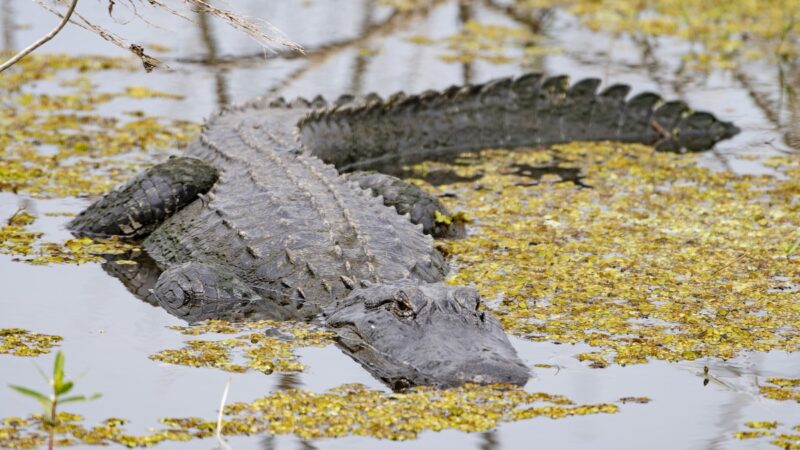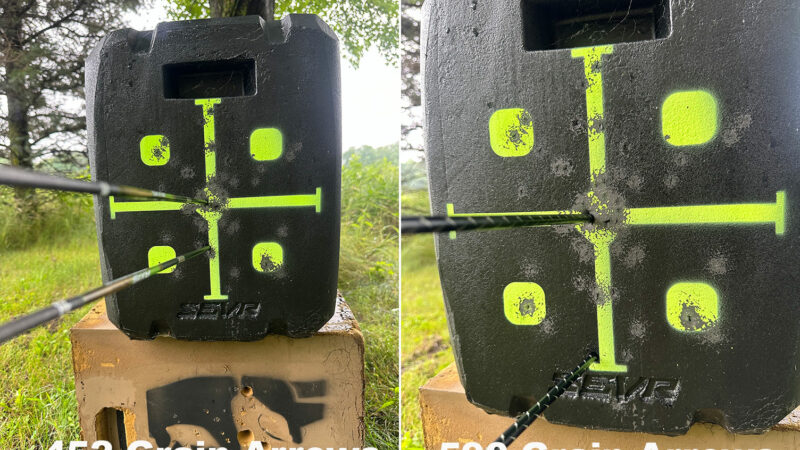Sportsmen’s Group Sues Feds Over New Dog Import Rule, Says It Will Cripple Breeders in Canada and Europe
The Sportsmen’s Alliance filed a lawsuit Wednesday against two federal health agencies asking them to rescind a new dog import rule that went into effect Aug. 1. The Centers for Disease Control and the Department of Health and Human Services say the new rule is meant to prevent the reintroduction of dog rabies into the U.S.
The rule updates the requirements for all dogs being imported and brought back into the U.S., including additional documentation, mandatory microchipping, and stricter precautions around rabies depending on which country the dog is coming from. It also prohibits the importation of any dog under six months of age into the U.S.
This final piece is one of the biggest sticking points for the Sportsmen’s Alliance, which is joined in its lawsuit by a Canadian dog breeder and a several hunting dog owners. They say the blanket puppy ban and all the additional red tape in the Feds’ new rule would cripple dog breeders outside the U.S. Although the new rule applies to all dog breeds, these groups say it would be especially problematic for hunting dogs, many of which come from Canada and Europe, as well as for dog owners who frequently travel across international borders to hunt or participate in trials.
“Health certificates or vaccination records for puppies are irrelevant — puppies are totally banned under the rule,” the Alliance explained in a news release about the lawsuit. “The puppy prohibition also has no exceptions, and this ban will completely crater a thriving community of long-established Canadian sporting dog breeders who send puppies to customers throughout the United States. Similar breeding programs for sporting breeds like Drahtaar (Germany) and Bracco Italiano (Italy) also stand to be decimated.”

Photo by serova ekaterina / Adobe Stock
The group and its supporters say the ban on importing puppies also disrupts the way that owners have traditionally acquired their dogs. The general consensus among veterinarians is that puppies are ready to leave their mothers and be re-homed around 10 to 12 weeks of age. The Canine Health Center at Cornell University says eight weeks is a good minimum for most breeders. (It also points out that several states have laws that prevent puppies from being sold any earlier.)
When it comes to bird dogs, however, a lot of experts recommend getting your hands on a pup sooner rather than later. The idea is to give a new owner time to bond with their dog before any real training begins. Legendary dog trainer Tom Dokken, who wrote the book on training and developing retrievers, also says he’s found it easier to start dogs younger when they’re more eager and driven, and before any developmental issues have taken root.
“We started a two-week bird and gun program [for pups as young as five months] when I started my own business. It’s so much easier to see them at that age,” Dokken tells Outdoor Life of his philosophy on younger vs. older dogs. “The older they get, the harder it is to access that [prey] drive. If there are social or developmental issues, now’s the time we can actually do something with them [to address it].”
Read Next: How to Train a Duck Dog Throughout His First Hunting Season
It seems the Feds had already gotten some pushback on the rule after they first announced it in May. On July 22, the CDC announced that it had “updated and simplified” the process for dogs coming from countries that have a low risk for rabies.
These tweaks weren’t enough to satisfy the Sportsmen’s Alliance, which announced its intention to file suit three days later. The group contends that the rule violates both the Public Health Service Act and the Administrative Procedure Act.
“This really hurts our members, especially in states like Michigan,” Todd Adkins, the Alliance’s vice president of government affairs, said in late July. “And that’s why we’re going to fight it.”
How the Rule Affects Hunters and Hunting Dogs
The CDC has created a guide to the new dog import rule, laying out the different requirements for dogs coming from different countries. Hunters and prospective dog owners can look at the CDC’s list of high-risk countries to determine the steps they’ll need to take.
Regardless of their country of origin, the CDC says that all dogs imported into the U.S. after Aug. 1 will need a CDC Dog Import Form showing they have the proper rabies vaccinations. They also must:
- Appear healthy upon arrival;
- Be at least six months of age;
- Be microchipped.
Dogs coming from high-risk countries are subject to additional requirements depending on whether the dog was vaccinated for rabies in the U.S. or elsewhere. Foreign-vaccinated dogs, for example, have to undergo a physical exam and revaccination. These dogs are also subject to a 28-day quarantine if they don’t have bloodwork from a CDC-approved lab showing adequate levels of the antibody that neutralizes rabies.
Read Next: The Best Hunting Dogs for Birds, Big and Small Game, and Tracking
The CDC recommends that owners and breeders start the importation process by getting their paperwork in order at least two to 10 days prior to bringing their dog back into the U.S. or importing a new dog into the country. For dogs coming from high-risk countries, owners and breeders should plan on starting this process weeks or even months earlier, according to the American Animal Hospital Association.
The post Sportsmen’s Group Sues Feds Over New Dog Import Rule, Says It Will Cripple Breeders in Canada and Europe appeared first on Outdoor Life.
Source: https://www.outdoorlife.com/hunting/sportsmens-group-sues-dog-import-rule/




